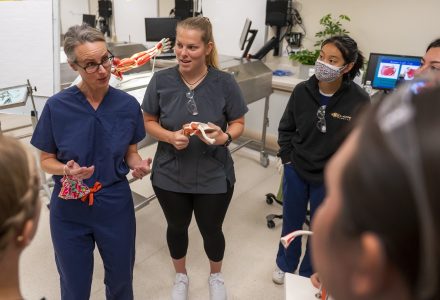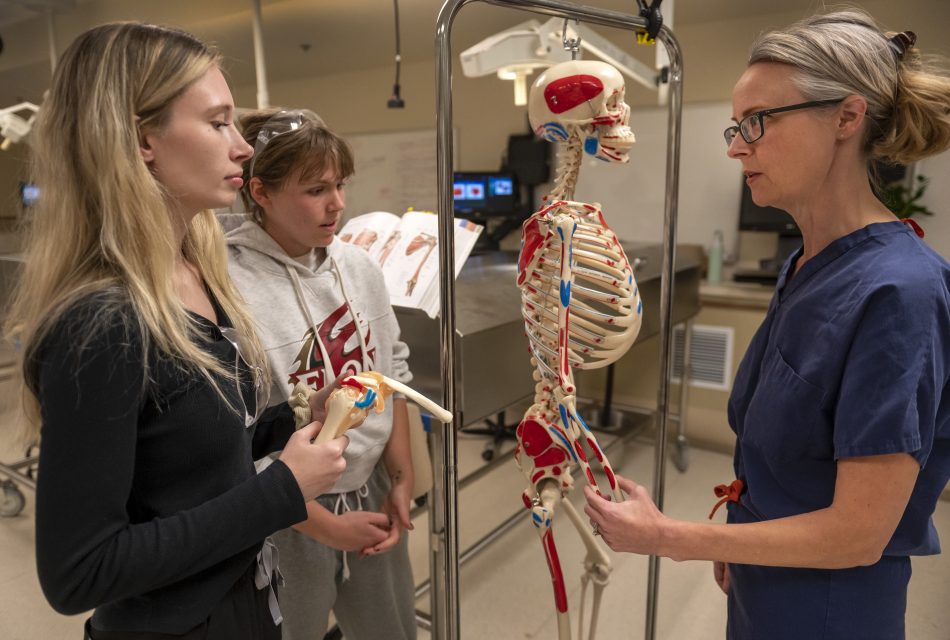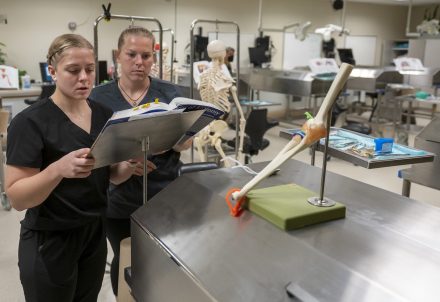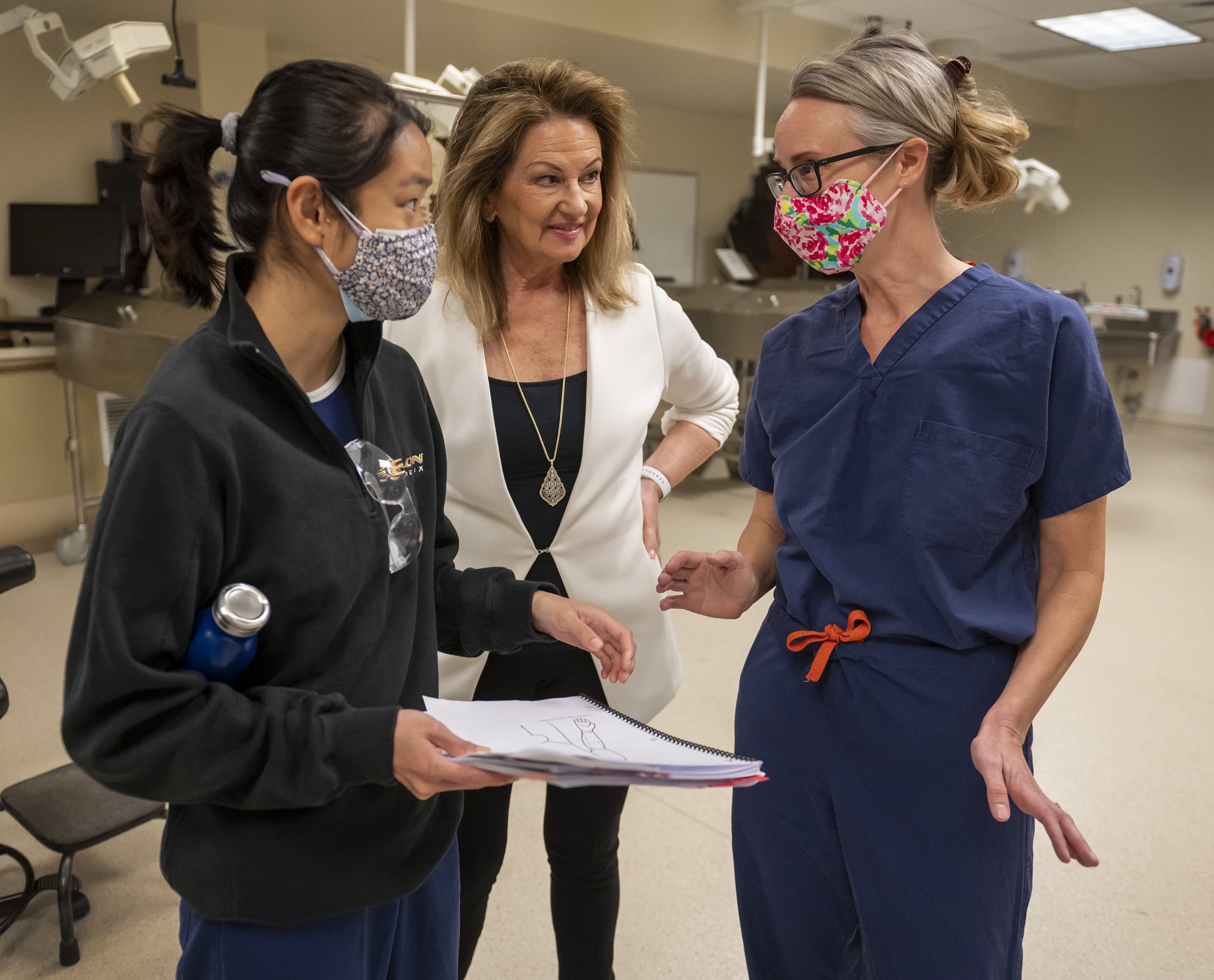Dr. Michelle Aurelius recently met with students in the School of Health Sciences to learn more about how the anatomical gift program supports health care education at Elon.
Dr. Michelle Aurelius, North Carolina’s chief medical examiner, received an up-close look at how the Elon University Anatomical Gift Program is supporting health care education at the university during a recent visit to the School of Health Sciences.

Standing shoulder-to-shoulder in Elon’s anatomy lab, Aurelius talked with students in the Doctor of Physical Therapy and Physician Assistant Studies programs as they gained intimate knowledge of the body’s inner structure and workings. That hands-on education is made possible through the university’s anatomical gift program, which allows donors the opportunity to become “silent teachers” after their deaths.
“Books and computers aren’t enough to create excellent health care providers,” Aurelius said about the importance of work in an anatomy lab to medical education. “Immersive learning in the anatomy lab is critical to the practice of medicine. Anatomy and physiology are the foundation for not only understanding disease and injury but preventing and treating it.”
Aurelius was appointed chief medical examiner in May 2019, a role in which she provides leadership and administration for the state’s Office of the Chief Medical Examiner including autopsy, forensic toxicology, forensic pathology and medicolegal death investigation. She had previously served as deputy chief medical examiner and prior to serving in North Carolina had been an assistant chief medical investigator and hospital autopsy director in the New Mexico Office of the Medical Investigator.

Her visit to Elon came at the invitation of Dianne Person, director of Elon’s anatomical gift program, and Janet Cope, professor of physical therapy education. Person and Cope met Aurelius at the N.C. Commission of Anatomy in November 2019, with their discussion leading to the visit to Elon on Tuesday, March 22, with plans for an earlier visit postponed due to the pandemic.
“This is such a unique experience for our students that we know will have a long-lasting effect on them as students and professionals,” Person said. “And as a program, it’s important for Elon’s Anatomical Gift Program to stay connected with the Office of the Chief Medical Examiner and the N.C. Commission of Anatomy. The visit by Dr. Aurelius and our continued connection benefits us all.”
Launched in March 2017 and housed within the School of Health Sciences, the Anatomical Gift Program serves as a resource for students in undergraduate science courses and graduate students as they learn about the human body and train to be physical therapists and physician assistants. The program provides members of the local community and others throughout the state the opportunity to consider anatomical donation as a contribution to educating the next generation of health care providers.

Aurelius said programs like Elon’s are vital to ensuring future health care providers have the educational foundation they need to promote health and save lives and offer a unique opportunity to donors. “The anatomical donor program is an opportunity to teach, mentor and impact the next generation of health care professionals,” Aurelius said. “This gift creates a bond between donors and students that will continue throughout their contributions to their patients and practice of medicine.”
In recognition of those bonds and the contributions of these silent teachers, the Anatomical Gift Program each year hosts a Donor Memorial Service to provide students and faculty the opportunity to express gratitude. Students routinely share the lessons they’ve learned and how those lessons have impacted them personally and professionally.
Aurelius said she had a wonderful time talking with Elon students during her visit to the school and found it inspiring to see them in action learning so much from their patient anatomical gift donors. “That learning combined with the deepest respect of their patient donors was an incredible connection to observe,” Aurelius said.
She hopes the students take away from their experiences in the lab what a great honor it is to be able to learn from those who have died. “Every patient, including those who are deceased, has a story to tell us and offers an opportunity to learn,” Aurelius said. “Applying those stories and moments will help us save lives and honor those who have lost their lives.”



